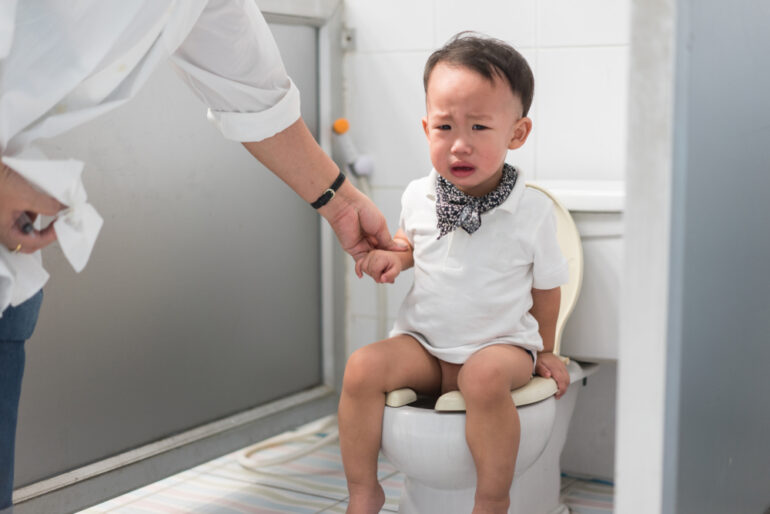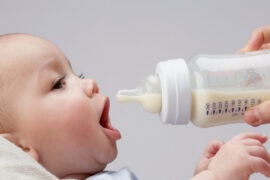Constipation is a common problem among children, and it can be caused by a variety of factors, including diet, lifestyle, and underlying medical conditions. Milk powder is one food that has been linked to constipation in children, but it is important to understand how milk powder can impact digestive health and what parents can do to prevent constipation.
Find Out How Milk Powder Impacts Their Digestive Health!
How Milk Powder Affects Digestive Health
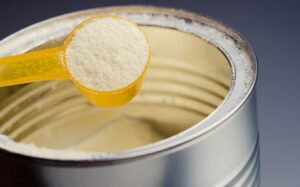
Milk powder is a processed food that is made by drying cow’s milk. It is a popular choice for parents because it is convenient, affordable, and shelf-stable. However, milk powder can also be difficult for some children to digest.
- High in protein.
One reason for this is that milk powder is high in protein. Protein is an important nutrient for children, but too much protein can be hard on the digestive system. Protein can also draw water into the intestines, which can lead to hard, dry stools.
- Low in fiber.
Another reason why milk powder can cause constipation is that it is low in fiber. Fiber is essential for digestive health because it helps to bulk up stool and make it easier to pass. Milk powder contains very little fiber, so it can contribute to constipation in children who are already at risk.
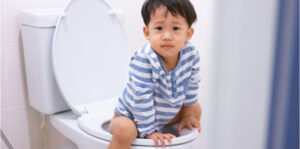
Signs and Symptoms of Constipation in Children
Some of the most common signs and symptoms of constipation in children include:
- Having fewer than three bowel movements per week
- Having hard, dry stools
- Straining to have a bowel movement
- Feeling bloated or full
- Abdominal pain
- Leaking stool
- How to Prevent Constipation in Children

Prevention
If your child is dealing with constipation, there are a number of things you can do to help prevent it, including:
- Getting enough fluids
Make sure your child is getting enough fluids. Fluids help to soften stool and make it easier to pass. Aim to give your child at least six to eight glasses of water per day.
- Increase fiber intake.
Fiber helps to bulk up stool and make it easier to pass. Good sources of fiber for children include fruits, vegetables, and whole grains.
- Encourage your child to be physically active.
Physical activity helps to stimulate the digestive system and promote regular bowel movements. Aim for at least 30 minutes of physical activity for your child each day.
- Avoid processed foods and sugary drinks.
Processed foods and sugary drinks are often low in fiber and high in unhealthy fats, both of which can contribute to constipation.
- Limit your child’s intake of cow’s milk and milk products.
If your child is constipated, try switching to a lactose-free milk or a plant-based milk alternative.

When to See a Doctor
If your child’s constipation is severe or does not improve with home treatment, it is important to see a doctor. The doctor can rule out any underlying medical conditions and recommend appropriate treatment.
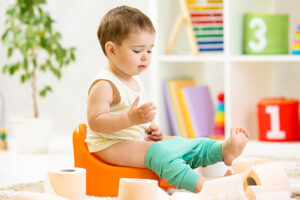
Additional Tips for Preventing Constipation in Children
- Make mealtimes relaxed and enjoyable. Avoid rushing your child or putting pressure on them to eat quickly.
- Offer your child a variety of healthy foods to choose from. This will help to ensure that they are getting the nutrients they need, including fiber.
- Encourage your child to listen to their bodies and go to the bathroom when they need to. Don’t let them hold on to stool, as this can make it harder to pass.
- Be patient and understanding. Constipation can be frustrating for both children and parents. It is important to stay positive and supportive.
- If you are concerned about your child’s constipation, talk to your doctor. They can offer additional advice and support.
Conclusion
Milk powder can be a convenient and affordable food choice for parents, but it is important to understand how it can impact digestive health. Milk powder is high in protein and low in fiber, which can contribute to constipation in children. If your child is constipated, there are a number of things you can do to help prevent it, including making sure your child is getting enough fluids and fiber, encouraging physical activity, and avoiding processed foods and sugary drinks. If your child’s constipation is severe or does not improve with home treatment, it is important to see a doctor.



